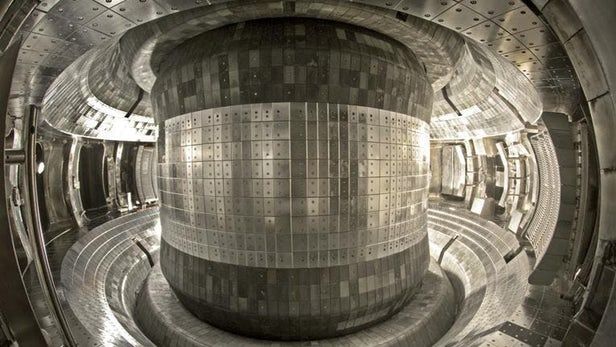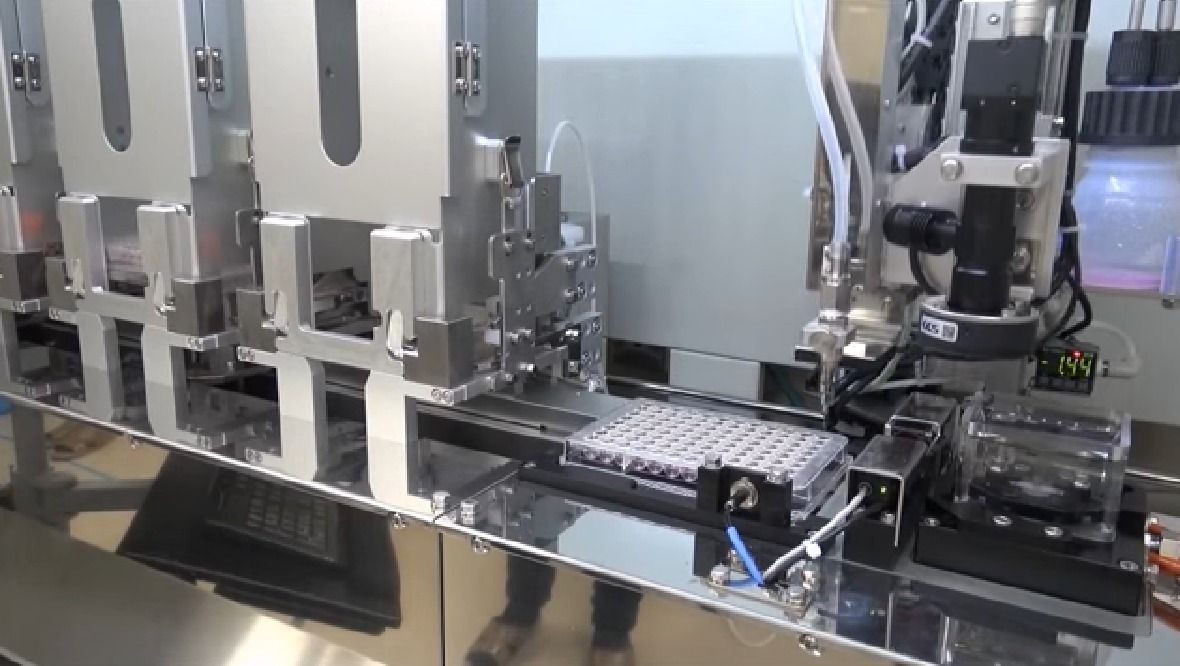Lancaster students win £30,000 prize for O-Wind turbine after scooping UK equivalent.




The day of clean, limitless energy from nuclear fusion has taken another step closer thanks to China’s Experimental Advanced Superconducting Tokamak (EAST). During a four-month experiment, the “Chinese artificial sun” reached a core plasma temperature of over 100 million degrees Celsius – that’s more than six times hotter than the interior of the Sun – and a heating power of 10 MW, enabling the study of various aspects of practical nuclear fusion in the process.

A new planet, more than three times the mass of Earth, has been discovered orbiting our closest single star. The discovery, which took more than 20 years to make, marks a change in the way we look for new planets.
This is the first time a planet of its size, known as a super-Earth, with an orbital period of 200 days, has been found using a well-established method; by measuring the fractional changes in the speed of the star caused by the planet orbiting around it.


Practices to enable more-thorough, earlier analyses of failed developments should be adapted to treatments for other challenging diseases, and should be part of regulators’ responsibilities. This will ensure that clinical research evaluates treatments faster and with more certainty.
Access to evidence from disappointing drug-development programmes advances the whole scientific process, explain Enrica Alteri and Lorenzo Guizzaro.

It’s imperative that Humanity understands the reality of warfare in these times when advanced and secret technologies are used against us on a daily basis.
From WiFi and cell phone frequencies to televisions and microwave ovens on up to the most exotic sonic weapons—it’s all disruptive and even lethal to the Human body and mind.
Because these weapons are silent and invisible, the war-loving aspects of society have been able to experiment with these methods for decades but the time for secrecy and these covert attacks on the life on our planet has come to an end.
What harm does it do? We can see the carnage if we will just look. Whales and dolphins washing up by the hundreds on beaches, bleeding from their ears, flocks of birds falling from the sky with no outward trauma, multiple forms of cancer rampant… it’s endless.

After successfully transplanting the first 3D-printed cornea in an animal, North Carolina company Precise Bio has recently announced the launch of a dedicated business for creating marketable, 3D-printed products for human eyes. Founded by scientists from the Wake Forest Institute of Regenerative Medicine, this company is developing bio-fabrication printers that can restore cells, tissues, and organs. Their proprietary technology, a 4D bio-printing platform, is said to resolve existing limitations presented by other bioprinters to enable more complex tissues to be engineered for transplants and treatments. By focusing on developing marketable products for the eye, the company aims to achieve rapid advancement in its field and move to overhaul the whole organ transplant system.
When a cornea is damaged by disease or injury, a replacement is often needed to restore vision. Transplant surgery using donated corneas is an available solution, however, it relies on a deceased donor. While the waiting list in the United States is nearly non-existent, other countries require longer wait times, some over a year, before one is available. The Eye Bank Association of America estimates that around 10 million people suffer from corneal blindness that could potentially be restored via transplant surgery. An artificially manufactured cornea would overcome supply limitations while also contributing to the knowledge base to develop more complex organs such as hearts and livers.

A leading Russian space research center has posted a video of its nuclear-powered rocket, that will be able to land on Mars after seven months, and can be re-launched into space just 48 hours after landing.
“A mission to Mars is possible in the very near future, but that’s not an aim in itself. Our engines can be the foundation for a whole range of space missions that currently seem like science fiction,” Vladimir Koshlakov, who heads Moscow’s Keldysh Research Center told Rossiyskaya Gazeta.
The institute, which is famous for developing the Katyusha rocket launched during World War II, has been working on what it says is a “unique” propulsion system since 2009. From past descriptions, it comprises a gas-cooled fission reactor that powers a generator, which in turn feeds a plasma thruster.